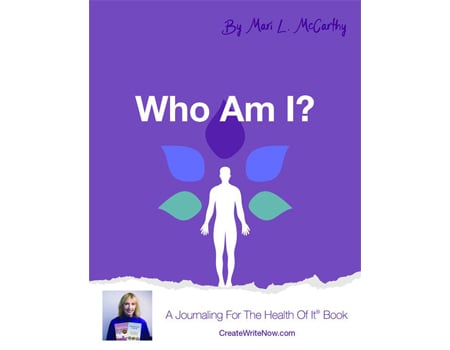Self-awareness is our ability to identify our thoughts, feelings, and behaviors. It’s all about understanding who we are and how we fit in the world. As such, it’s one of the most important elements in living a happy, healthy, purposeful life. Yet, most of us lack self-awareness. That’s because our human biology makes it incredibly tricky to be self-aware.
Fortunately, we can develop our self-awareness with practice. When armed with the right tools - knowledge, questions, and (of course) our journals - we can build our insight and reclaim the life we want. Journaling encourages mindfulness and provides a safe space to explore emotions. Neuroscience reveals that our emotional brain drives our behavior more than we realize, and journaling helps bridge the gap between our actions and the emotions that fuel them.
Your journal is an excellent place to question and process your emotions. However, societal messages and personal upbringing have caused us to develop some unhelpful habits when it comes to our emotions.
Journaling Tips and Techniques
Journaling For The Health Of It® requires more than just writing down thoughts and feelings. Start by naming the emotion or feeling you’re experiencing. Use simple, child-like language to describe your feelings accurately. Avoid intellectualizing, exaggerating, or downplaying your emotions.
Be honest in your journaling, even if it feels uncomfortable. Go beneath the surface of your emotions by asking tough questions and exploring the honest answers. Respect your feelings by recognizing they are valid and worthy of consideration. Over time, consistent journaling will lead to greater emotional clarity and self-awareness.
Journaling offers numerous benefits for mental wellness. It provides a safe space to explore feelings and emotions without judgment, helping you better understand your experiences. By documenting your thoughts, journaling allows for objective observation and uncovers triggers behind emotional reactions.
Moreover, journaling can prevent negative emotions from lingering, reducing the risk of physical ailments like hypertension, weight gain, and unhealthy coping strategies. Consistent journaling can lead to improved mental health, greater energy, and an overall sense of well-being. It’s a powerful tool for managing stress and achieving emotional balance.
To gain emotional clarity, try incorporating specific journal prompts into your routine. For example, 'Who Am I Today?' helps you explore the details behind your feelings. 'When have I experienced something similar?' encourages you to identify patterns in your emotional responses. Another good prompt is to start your Journal entry with "I'm aware that I... Write down everything that comes to mind. Read your entry out loud and write about how you're feeling.
**********
Become more self-aware and unlock your true potential in the Who Am I? Journaling Power Course.
In this course, you will use journaling to explore topics in five different themes:
-
Inner World: Understanding how you operate, and why you feel and act in certain ways
-
Outer World: Learning how your actions affect others, and how to improve your relationships
-
Creativity: Cultivating the unique gifts you bring to the world, and how to share them more
-
Work: Examining your professional identity, and how you can become a more effective leader and collaborator



Leave Comment